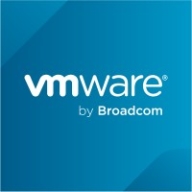

VMware Tanzu Data Solutions and Dell PowerStore are noted competitors in data processing and storage. VMware Tanzu has the upper hand in flexibility and cost-effectiveness with its open-source options, while Dell PowerStore offers high performance through advanced storage features.
Features: VMware Tanzu Data Solutions provides advanced data processing with MPP architecture, seamless data science tool integration, and customizable SQL support. Dell PowerStore focuses on high performance with NVMe support, AI-based storage management, and robust VMware integration, enhancing storage efficiency.
Room for Improvement: VMware Tanzu requires improvements in stability, query performance, and compatibility with modern PostgreSQL features. Dell PowerStore could enhance deduplication consistency and user interface usability, and both could benefit from additional enterprise functionalities.
Ease of Deployment and Customer Service: VMware Tanzu Data Solutions is adaptable, supporting various cloud setups and receiving favorable technical support reviews. Dell PowerStore primarily serves on-premises scenarios with hybrid options, coupled with professional service engagements and strong customer support.
Pricing and ROI: VMware Tanzu's model, with its open-source options, provides a cost-effective solution with flexible deployment options. Paid support remains affordable. Dell PowerStore, though initially expensive, offers significant value through its performance, making it a wise investment for enterprise-level storage needs due to its comprehensive storage features.
If you purchase storage with 300 terabytes, you can easily achieve one petabyte of effective capacity.
It's been trouble-free the entire time, with very high performance, as it has been designed and built properly.
We have seen a return on our investment in Dell PowerStore; definitely our cost per terabyte has been very good compared to some of the other vendors that we would have been using previously, and our performance benchmarks have exceeded what we were expecting.
If necessary, they will search for a specialist within their Dell network who we can approach with our questions.
I would rate the technical support of Dell PowerStore between nine and ten out of ten.
They're responsive, knowledgeable, and have a quick turnaround.
The solution's scalability is a ten out of ten.
The customer likely exceeds 20,000 users globally.
You can create as many tools as needed, providing scalability based on the use case.
Most of our functions or jobs are queued due to that.
When I removed all the cables, it failed over within five minutes.
There are no bugs or glitches and it doesn't crash or freeze.
I would rate the stability of Dell PowerStore as ten out of ten.
I have faced stability issues, mainly due to the storage my organization has, though I am not sure if it's specifically due to the tool.
If you want to delve into where your I/Os are going, the reporting might need more in-depth information to make informed decisions.
In my organization, we have had to go through two weeks with no replication, which is not very handy for our production environment.
Something needs to be done with the caching to ensure that if some issue occurs, there needs to be an ability to disable caching during maintenance to make it static, safe, and good.
Likely the cost is $400,000 whereas IBM may be $250,000.
Based on my experience, the cost of Dell PowerStore for around 500 GB of capacity is very competitive compared to any other platform in the market.
There's no need to pay for a license; it's all-inclusive.
The solution promotes data reduction, often meeting the compression ratio.
The PowerStore's compression ratio is even higher than the Unity system.
The deduplication part of the solution is valuable since, as a user, you get more space for less money.
The product is not complex; I do not have to create stored procedures, functions, or views.
| Product | Market Share (%) |
|---|---|
| Dell PowerStore | 1.5% |
| VMware Tanzu Data Solutions | 3.8% |
| Other | 94.7% |


| Company Size | Count |
|---|---|
| Small Business | 41 |
| Midsize Enterprise | 27 |
| Large Enterprise | 61 |
| Company Size | Count |
|---|---|
| Small Business | 30 |
| Midsize Enterprise | 10 |
| Large Enterprise | 48 |
Dell PowerStore is a scalable, high-performance platform supporting both modern and traditional workloads, enhancing IT operations with AI-driven automation and advanced data reduction features.
Designed for flexibility, Dell PowerStore integrates seamlessly with VMware, providing robust security and high IOPS. Users benefit from fast NVMe storage, intelligent data management, and scalable performance to handle diverse workload demands. However, improvements are needed in replication, enterprise functionalities, and UI complexity. Stability and support issues highlight the need for enhanced monitoring and pricing strategies.
What are the key features of Dell PowerStore?In industries like finance, healthcare, and IT, Dell PowerStore is critical for VMware virtualization, high-performance databases, and backup storage. It supports hosting virtual machines, mirroring storage, and handling SAP and Oracle databases effectively. Its role in hybrid and on-premises setups showcases its adaptability and integration capabilities for mission-critical tasks.
VMware Tanzu is a robust platform tailored for data warehousing, complex analytics, BI applications, and predictive analytics. It excels in scalability, performance, and parallel processing, enhancing data handling efficiency. Users report significant productivity improvements and streamlined operations, making it ideal for comprehensive data solutions.
We monitor all Data Warehouse reviews to prevent fraudulent reviews and keep review quality high. We do not post reviews by company employees or direct competitors. We validate each review for authenticity via cross-reference with LinkedIn, and personal follow-up with the reviewer when necessary.